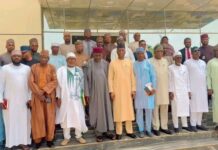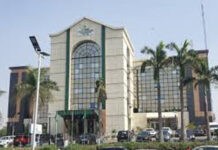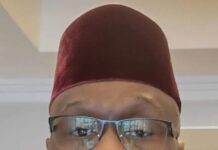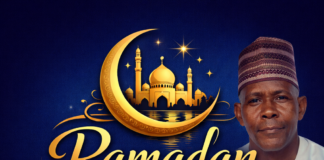A contentious debate has erupted in South West Nigeria over the establishment of Shariah panels in the region, with Muslim leaders emphasizing their right to self-determination and non-Muslim groups expressing apprehensions about the potential implications of such panels.
At the heart of the controversy is the distinction between Shariah courts and Shariah panels. However, Muslim leaders have maintained that the proposed Shariah panels are not courts but rather arbitration committees that will handle civil matters such as marriage, divorce, inheritance, and disputes over contractual agreements between Muslims.
In a bid to explore the intricate dynamics surrounding the establishment of Shariah panels in South West Nigeria, Ishola Balogun engaged both Muslim stakeholders and non-Muslims to gather a diverse range of perspectives on the matter. As discussions intensify regarding the role of Shariah in the region’s legal framework, opinions vary widely. Supporters advocate for the establishment of Shariah courts as a means of recognizing and accommodating the unique legal needs of the Muslim community, while critics express concerns about potential implications for broader societal cohesion. This engagement aims to illuminate the complexities of the ongoing debate, highlighting the hopes, fears, and historical contexts that shape the views of both communities.
A legal practitioner who is also a Sharia judge (Qadi) at the Sharia Panel in Lagos State, Mr. Trimizee Adisa Dairo, said the quest for Shariah panels is about asserting their right to live according to their faith. “Shariah is part and parcel of a Muslim’s life,” Dairo emphasizes. “It encompasses our private and public life, social and economic life. Our lives are regulated by Shariah.”
READ ALSO: NAHCON begins major pre-Hajj arrangements
READ ALSO: Abesan Muslim Community School reopens after fee hike crisis
“Shariah is part and parcel of a Muslim’s life, and no Muslim will deny that. Again, Sharia is wide and comprehensive. It encompasses our private and public life, social and economic life. Our lives are regulated by Sharia. Therefore, it is impossible for a Muslim to live without Sharia. Once you take away Sharia from the life of a Muslim, he becomes a non-Muslim. That is how important it is. It is not like other religions that regulate their practices on a matter of faith. That is why Sharia is very important to a Muslim and in a Muslim’s life.”
Difference between Shariah Panel and Shariah Court
“There is agitation by Muslims in the Southwest to allow the application of Sharia so that Muslim marriages will be governed by Sharia as opposed to Yoruba customary law, Muslim inheritance will be governed by Sharia as opposed to customary law, and the guardianship of children will be regulated by Shariah law.
“These are permissible, and these are what is going on in the North. It is the right of Muslims in the South West to be governed by the law of their religion regarding those highlighted matters. Since the constitution expressly provides for this, it is a genuine agitation that has been ongoing for some time. That is as far as the official courts are concerned because it is the business of the government to establish courts to govern people in the state.”
“Also note that none of the states in the South West has acceded to that; they have all rejected it, apparently because of criticisms and opposition from non-Muslims. But on the issue of having a panel, it is different. It is like arbitration, and the law of arbitration is very clear. A Muslim can decide to contract his marriage under Sharia and within the fold of Islam, and when this is done, he has the fundamental right to seek redress on the same issue under an arbitration panel. That does not require any form of state approval because it falls under the freedom of association to submit willingly to arbitration proceedings. If both parties submit to the arbitration proceedings, then the decision becomes binding on them. It is not for Christians and non-Muslims alike to begin to cry out about why Muslims want to have an arbitration panel; it shows they are ignorant of the issue they are criticizing.
“For a Christian who has issues in his marriage, he has a place to go, which is the High Court. For those who willingly decide that they want to be bound by the customs and traditions of the Yorubas, if they have issues in their marriage and inheritance, they go to the Customary Court, and the customs will be upheld there. For Muslims who do not consent to either of the two, where do you expect them to go when they have issues? We have seen situations where Muslims go to the Customary Court on issues of marriage, and the court says it has no jurisdiction to entertain the matter because the marriage is governed by Muslim law, not customary law.
“Remember that the government has failed to create a court that will look into such matters. So, in order to fill the gap and circumvent that problem, Muslims have come together to establish arbitration panels. That is exactly what Muslims are doing all over the South West. It is the failure of the government to do the needful. Our government officials attend Muslim marriages, but they fail to understand that the couple has no place to turn to when issues arise in their marriage. This is where the Sharia panel comes in.
Addressing misconceptions
“I think non-Muslims only focus on one aspect of Sharia, which is the criminal aspect. One of the public laws in Sharia is the non-criminal aspect. Just as Sharia is a system of law, people are always apprehensive about any law; they become apprehensive about the punishments. They hear about stoning to death, cutting off hands, and so on, but Sharia is not limited to that, and it is rarely possible because its execution is the duty of the state, not individuals. Besides, it is optional if you choose to be bound by that.
“So, I don’t know why non-Muslims should entertain any fear. Nigeria is ruled by a constitution, and we can have two systems of law running concurrently; Sharia is allowed with very limited application as it relates to Muslim private life. That is why the constitution allows Muslims to be governed by Sharia in the aspects of marriage, divorce, inheritance, guardianship of children, and to some extent, in any contractual agreement. These are the areas, so outside these areas of law, Sharia is not applicable, at least at the official level in Nigeria. So, non-Muslims are only being apprehensive without any basis.
Stressing the need for Sharia Panels
Responding to how Muslims were resolving marriage disputes before the advent of Sharia panels, he noted, “If those disputes had been resolved by the conventional court, it means they didn’t take cognizance of the fact that they were contracted ab initio under Islamic law, and moreover, because there was a dearth of experts in Islamic law. It is not as simple as that. Muslim marriages are not the same as Christian or customary marriages. Yes, you can rightly assume that Christian marriages are statutory marriages. That is why when there are issues, they go to the conventional courts. As for Muslims, they cannot go to the conventional courts because Muslim marriages are Islamic in nature and regulated by Sharia. That is why I said earlier that Sharia governs the private and public lives of Muslims. These benefits are enjoyed by our northern brothers because they go to the Sharia courts on such issues. It should also be noted that these Sharia courts do not entertain complaints from non-Muslims.
“I don’t know the reason for the apprehension because it is strictly for Muslims and not for non-Muslims. You will not hear of a Sharia court in the North assuming jurisdiction over a Christian or someone whose marriage was not contracted according to Sharia. That is what we are clamoring for here. The agitation is simple: to adjudicate Muslim marriages, guardianship of children, and inheritances.”
On possible spread of Shariah in the region
“It is not possible unless it is codified or passed into law by the state House of Assembly. In criminal law, you don’t commit an offence unless that offence is expressly written as a law. The criminal aspect has not been approved or codified by the state, so, there is no way the sharia court will do that. There are aspects of the Sharia the constitution allows. These are areas of marriages, divorce, inheritance, guardianship and to some extent, contract. It’s a constitutional provision.
Between Litigation and Arbitration — Barr Olarinde

An Ibadan-based legal practitioner, Barr Marthina Olarinde, said, “I don’t think we are ready for that. It is a structure that is very rigid, and there is no escaping it. Once a judgment is pronounced, it is difficult to overturn. This is about religion, and you don’t play around with it. Once it is declared to be A, they go for A. Whatever justification anyone provides will not change that. As long as it is related to religion, it is inflexible. It is strict, and I believe we are not prepared for that.
“However, having said that, as long as anyone chooses to be bound by it, it shouldn’t pose any issues. The fact is that it is optional. It is up to the individual to decide whether to pursue litigation or arbitration,” she said.
The CAN Chairman, YEWA South, Ogun State, Catchiest John Akapo declined comment saying: “I don’t know anything about the agitation of the sharia panel and I can’t comment on that.
Panel can’t compel people to submit to arbitration — Shakirullahi Obale

Mr. Shakirullahi Obale, another sharia judge at the Abesan Sharia arbitration panel, offers a deeper perspective. “The Sharia Panels we are asking for in the South West cannot compel people to submit to its arbitration. It is a misconception—and indeed a sign of narrow-mindedness—to believe that Islamic Sharia is solely about killing, stoning, amputation, and similar punishments.
“ Today, we have Jaiz Bank and other Islamic alternative financial institutions, including Sukuk bonds and others. Are the operations of these Islamic-based organizations and policies about killings? No, they are not. However, there are ill motives to distort the perception of Islam.
“There is a difference between Sharia panels and courts. A Sharia panel is solely for arbitration. As one of the judges (Qadi), we have two panels in Lagos State—one in 1004, Lagos, and the other at Abesan Estate. Unlike the courts, which are established by state law, a Sharia panel cannot compel people to submit to its arbitration. No individual or organization can establish a Sharia Court of Appeal. Those who criticize it and those who threaten legal action are raising issues without any basis.
“Sharia, as we know it, has been in existence in Nigeria since 1908. Some people are determined to castigate anything related to Islam. The Sharia panels operate in mosques to settle issues regarding marriage, inheritance, divorce, guardianship, and contracts. Therefore, there is no basis for criticism. Some of those who criticized Jaiz Bank and Sukuk in the past are now benefiting from them. They may lack knowledge about their operations, but they find it convenient to criticize. As it stands, Islamic law is recognized by the constitution.”
Govt has failed the Muslims
He explains further: “Muslims in the South West are agitating because it is their right. The constitution expressly provides that a Sharia Court of Appeal can be established by any state, provided it is passed into law by the state House of Assembly. This agitation has been present, yet none of the states in the region has acceded to the demand. Several proposals have been made, but they have been rejected, apparently because of criticism from non-Muslims.
“As for the establishment of a panel, it is intended for arbitration. The law of arbitration is very clear: it serves as a means of mediation to resolve disputes. In that regard, Muslims can choose to participate or not in matters related to marriage, divorce, and other issues mentioned earlier. This does not require any form of state approval; it is about the freedom of association. This situation arises because the government has failed in its duty to do the right thing. No Muslim can live a life outside the Sharia. It is not possible.”
Despite all the criticisms, Obale expressed optimism that the agitation will come to pass sooner.
“Yes, I hope so, and Insha Allah, it will happen. Whether they like it or not, we will have a Sharia Court of Appeal. I am surprised that Lagos State has not initiated this because it is known as a leading state in many aspects. The administration of criminal justice was started by Lagos State. One day, we will have this in one of the states,” he said.
We’re not afraid of legal action — MURIC
As the issue rages on, the Muslim Rights Concern (MURIC) has also weighed in on the controversy, with its Executive Director, Professor Ishaq Akintola, asserting that Yoruba Muslims are not afraid of legal action. Akintola pointed out that Shariah panels already exist in several states in the South West, including Lagos, Ogun, and Osun, and that they operate within the framework of the Nigerian constitution.
Akintola criticized the Yoruba Council’s opposition to the Shariah panels, describing it as an attempt to create tension. “What is the big deal? Why so much fuss? Isn’t this much ado about nothing?” he asked. The MURIC director also invoked historical instances of Shariah courts in the region, noting that they have been a part of Yoruba Muslim tradition for centuries.
He also addressed incorrect accusations against the Shari’ah panels, clarifying that they do not impose laws on non-Muslims and that participation is voluntary. “Only those who want to make caricatures of themselves will think of stopping the Shari’ah panels. They are not disturbing anybody,” he stated. Akintola took issue with the Yoruba group’s letter, noting it was addressed to the wrong individual, and emphasized that their claims about Shari’ah lacking history in Yorubaland were unfounded.
Historical perspective to Shariah
The Supreme Council for Shari’ah in Nigeria (SCSN), a legally registered entity, has been at the forefront of this struggle.
According to the SCSN, Shariah law is not just a moral code, but a complete system of law that governs all aspects of a Muslim’s life. The group argues that the Lagos State government’s failure to establish Shariah courts has led to the marginalization of Muslims in the state. Currently, only Common Law and Customary Law are recognized in the state, leaving Muslims without a legal framework that aligns with their faith.
The SCSN points to the 1999 Constitution, which recognizes Shariah law as one of the three legal systems in Nigeria. The group argues that the Lagos State government’s refusal to establish Shariah courts is a violation of Muslims’ constitutional rights. The SCSN has been working tirelessly to establish Shariah panels in the state, which have been operating since 2002. These panels have received widespread acceptance from Muslim Lagosians and have published select judgments in a law report.
Despite the progress made, the SCSN faces opposition from some quarters, including the Yoruba Council Worldwide, which has threatened legal action against the group. However, the SCSN remains undeterred, arguing that the demand for Shariah courts is not a new phenomenon, but a century-long struggle for recognition and justice.
The group’s efforts have been bolstered by court judgments, including a 2008 Lagos High Court ruling that Shariah law is not the same as Customary Law. The SCSN is confident that its demand for Shariah courts will ultimately prevail, citing the constitutional provisions that recognize Shariah law as a legitimate legal system in Nigeria.






















